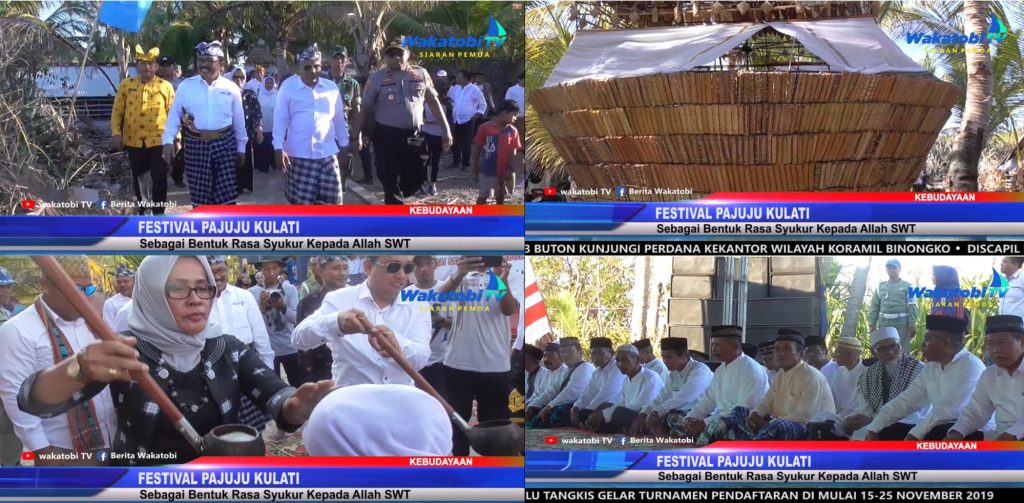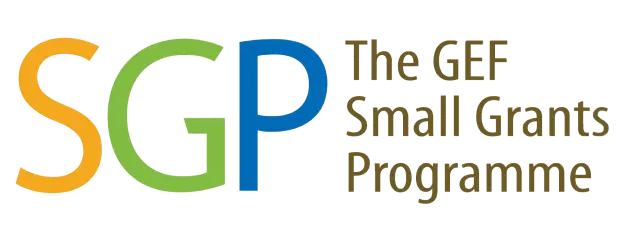POASSA NUHADA GROUP
INS/SGP/OP6/Y2/STAR/BD/18/021
Amandement No.
INS/SGP/OP6/Y1/AMANDEMENT/STAR/BD/18/021
Outcome_1:
EFFECTIVE THE FUNCTION OF FISH BANK AS A SOURCE OF LOCAL FOOD SECURITY FOR THE KULATI VILLAGE COMMUNITY
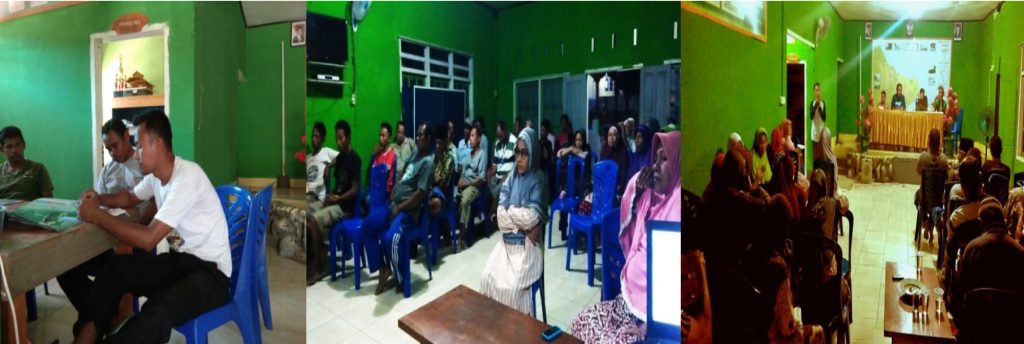
Photo 1: Initial Coordination with Village Government.
Photo 2: Village Community participating in the Village Conference regarding the reinstatement of the fish bank area.
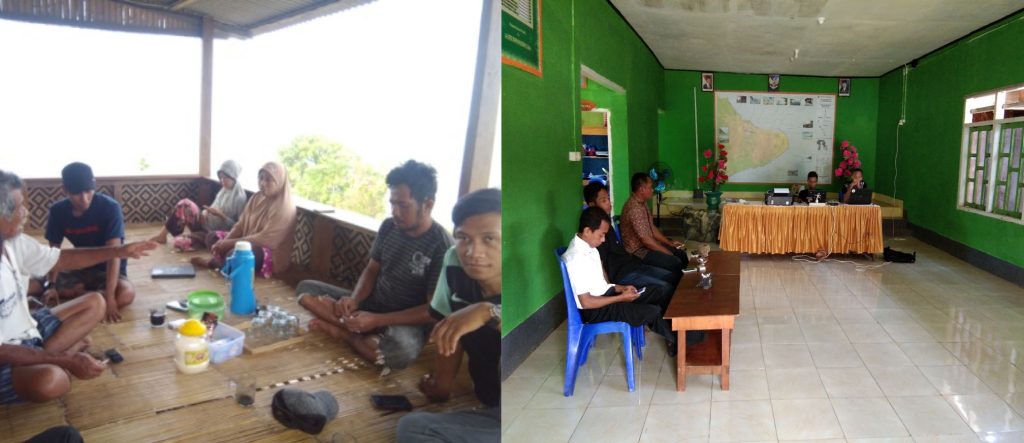
Photo 3: Poassa Nuhada group holding a discussion on preparations for Baknikan mapping activities.
Photo 4: Consultation with the village government before mapping the fish bank area (marine).
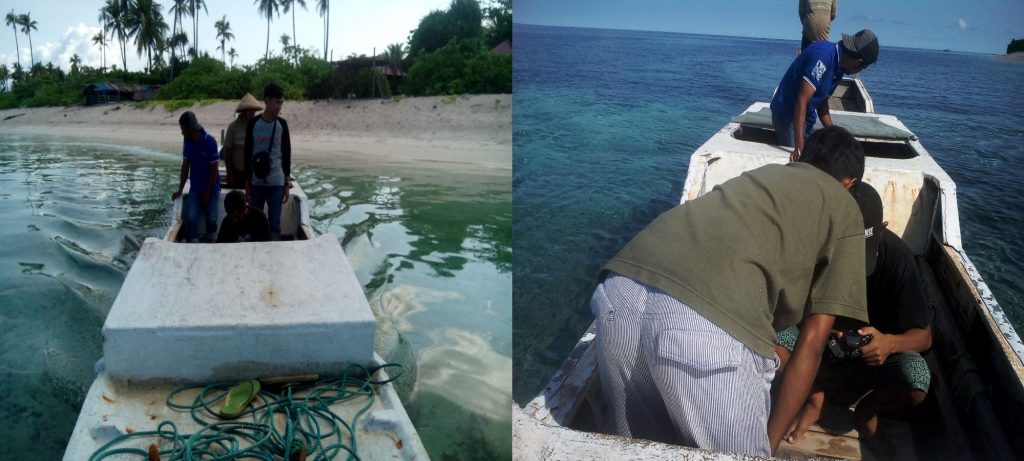
Photo 5: Members of the Poassa Nuhada Group taking coordinate points together with experts from the FORKANI Institute.
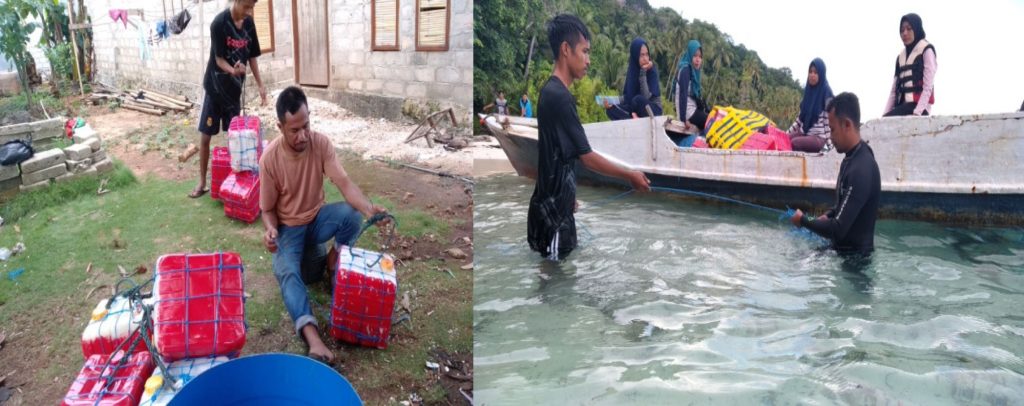
Photo 8: Making 10 Muring buoys.
Photo 9: Preparation of ropes to tie ballast stones.
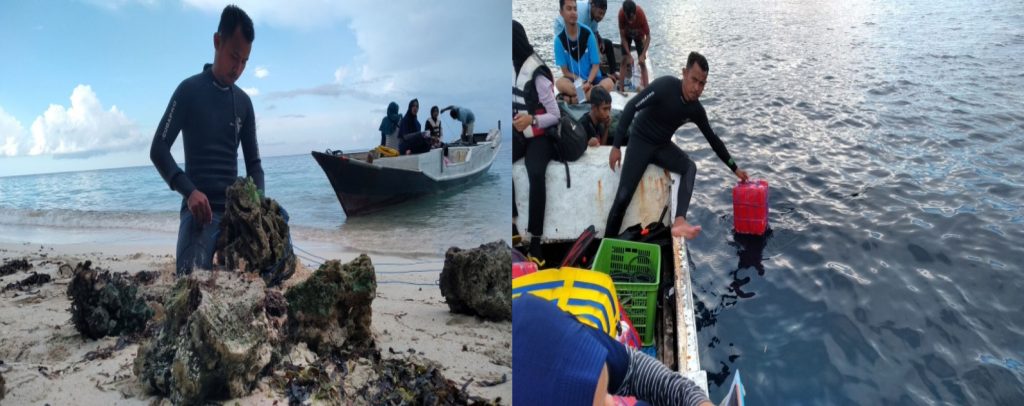
Photo 10: Preparation of stones for ballast for the muring buoy.
Photo 11: Muring Buoy successfully installed in the fish bank area.
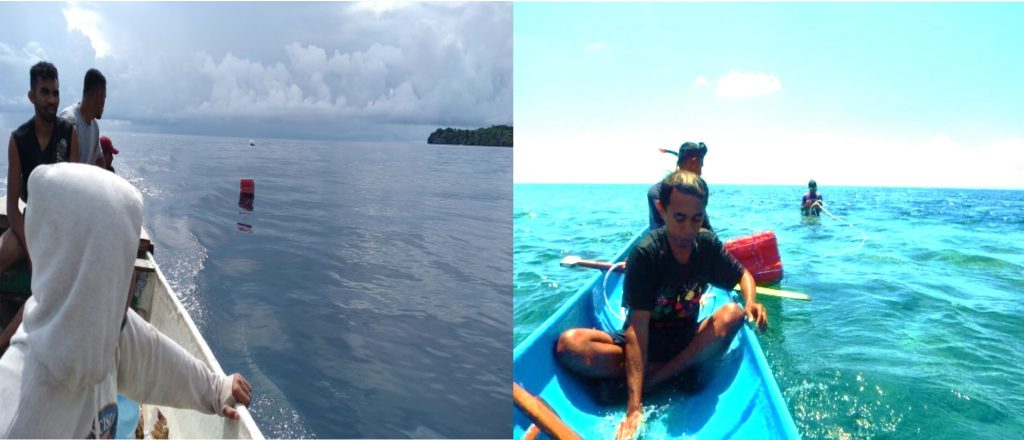
Photo 12: Monitoring with youth organizations.
Photo 13: Routine monitoring with fishermen and members of the Poassa Nuhada group.
Outcome_2:
AVAILABILITY OF FORESTS AS WATER ABSORPTION AREA IN THE SPRING AREA OF KULATI VILLAGE
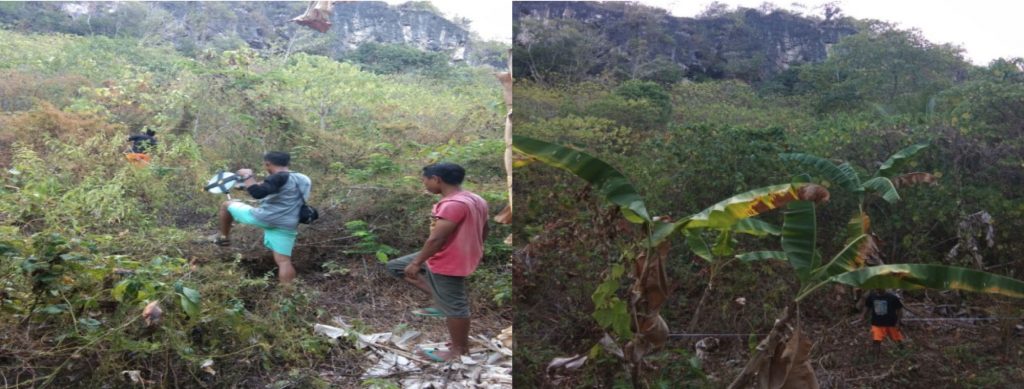
Photo 14: Identifying plant types and the area of land where manga and jackfruit tree seeds will be planted.
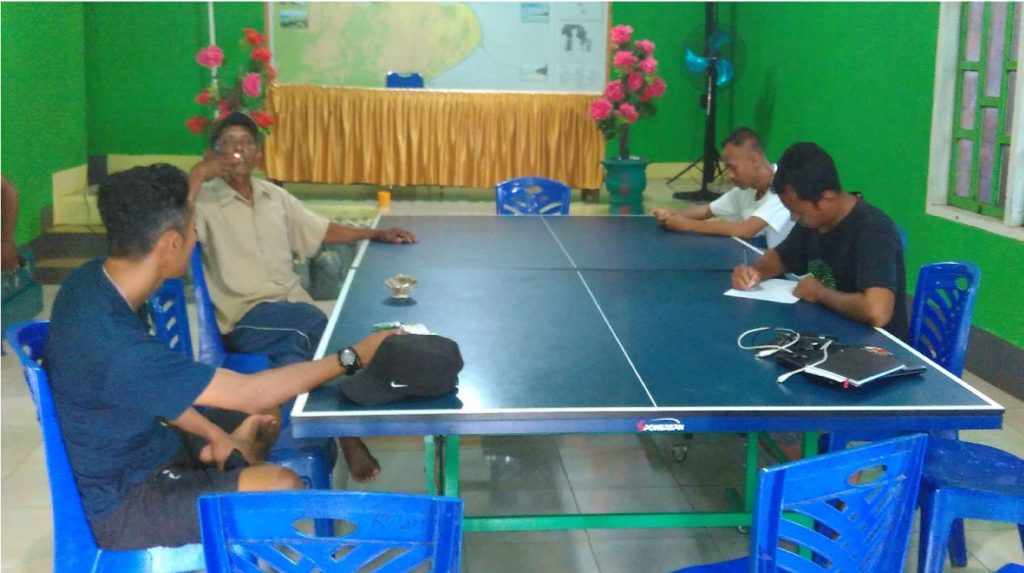
Photo 15: Deliberation with land owners in the Te'ewamakuni spring area.
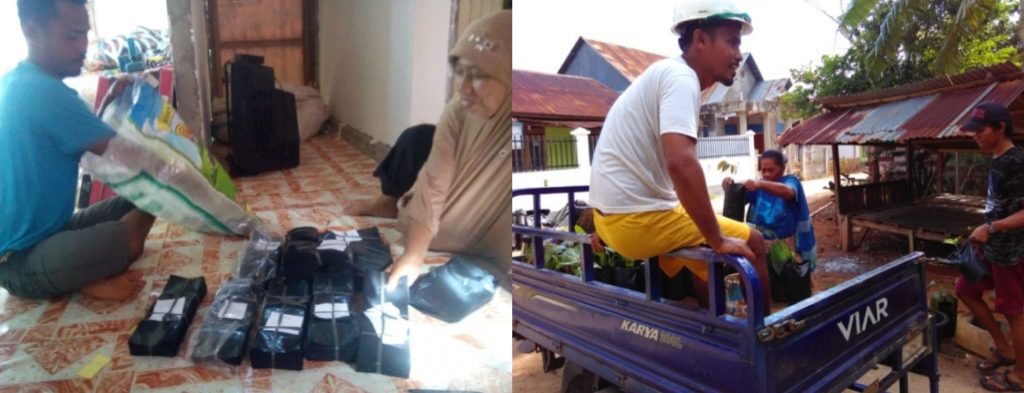
Photo 16: Preparations for distributing polybags to 9 dasawisma groups.
Photo 17: Transporting mango and jackfruit seeds which had previously been planted in polybags by local women.
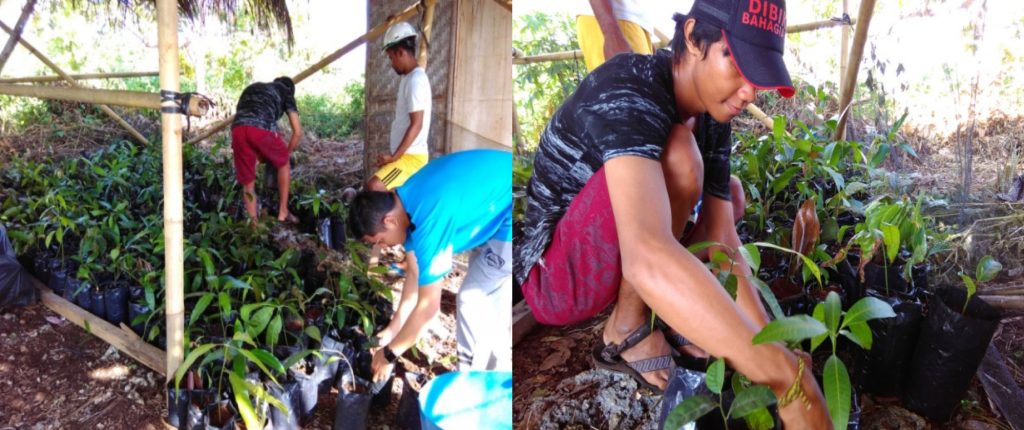
Photo 18: Mango & Jackfruit tree seedlings placed in the seedling nursery.
Photo 19: Mango and Jackfruit seeds separated by type.
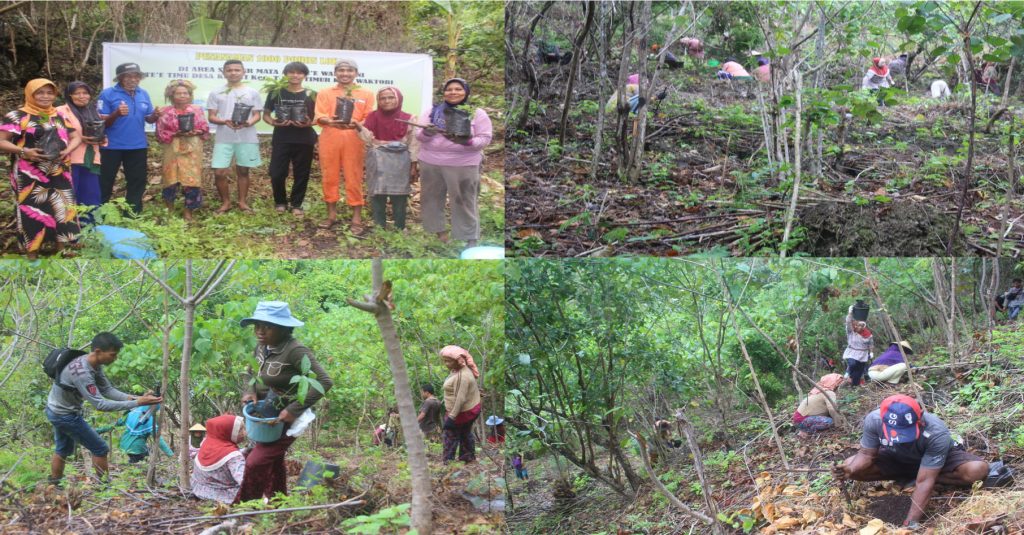
Photo 20: Mango and Jackfruit seeds separated by type.
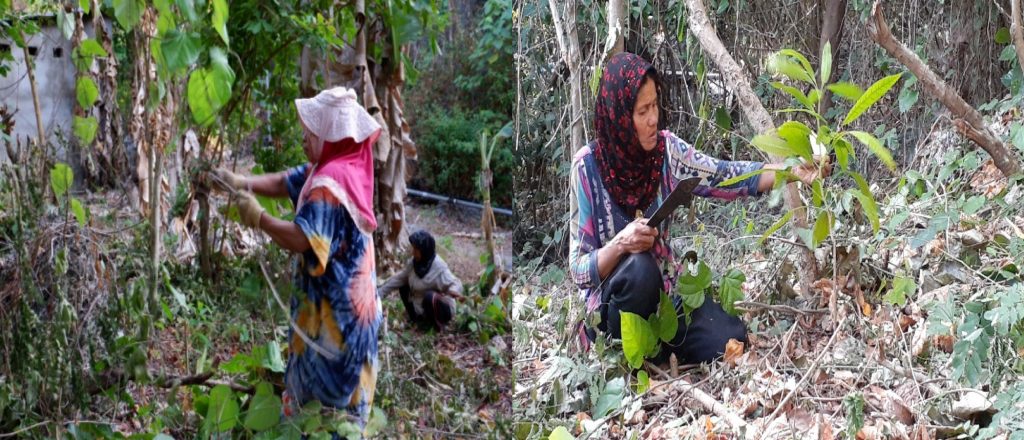
Photo 21: First stage of maintenance of mango and jackfruit trees at the Te'ewamakuni spring location.
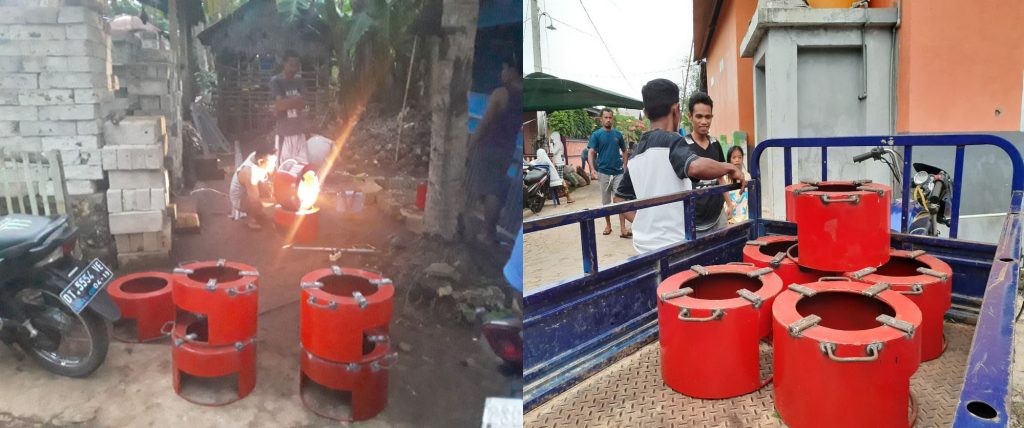
Photo 22: Making a wood-saving stove carried out by a welder.
Photo 23: Distribution of stoves to each dasawisma assisted by the village community.
Outcome_3:
INCREASING KNOWLEDGE AND BREAKTHROUGH FOR THE AGRICULTURE AND FISHERIES TO SUPPORT INCREASING COMMUNITY FOOD SECURITY THROUGH COOPERATION WITH VARIOUS PARTIES WHO HAVE RELATED COMPETENCIES, AND REVITALIZING LOCAL KNOWLEDGE ABOUT NATURAL RESOURCE MANAGEMENT.
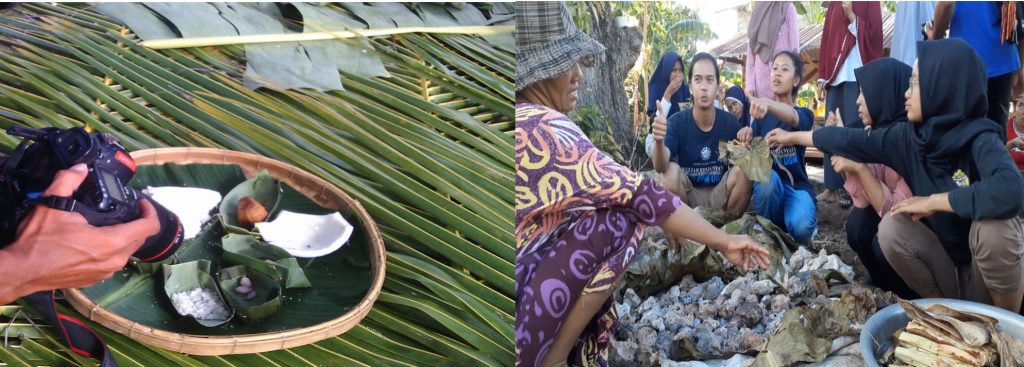
Photo 24: Documentation of one type of local food.
Photo 25: Local food documentation activity with UGM KKN-P students.
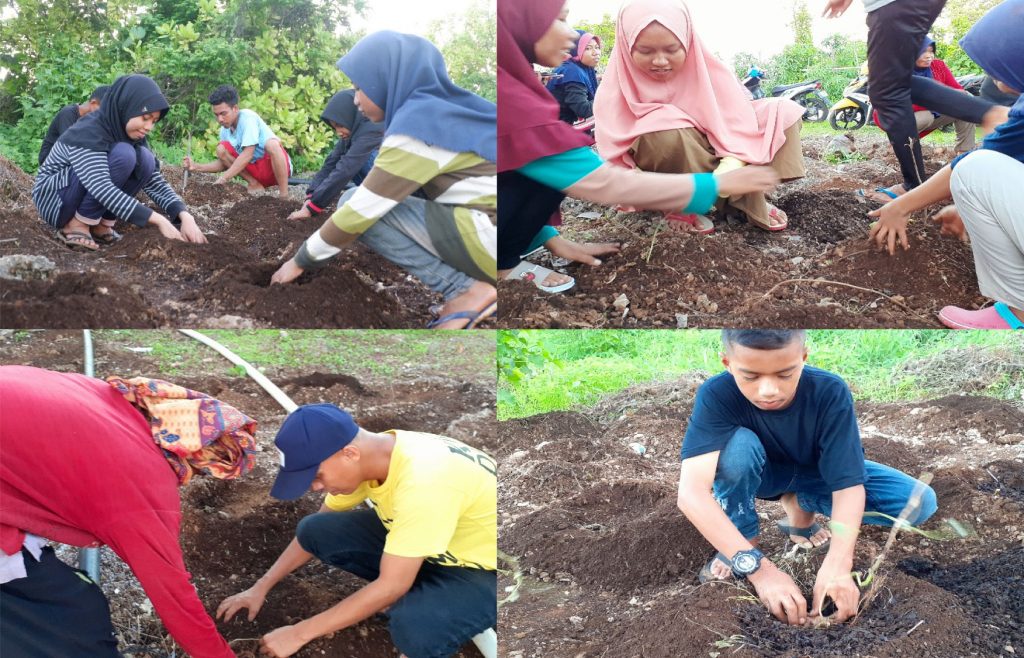
Photo 26: Transfer of Knowledge to the Young Generation of Karang Taruna with Dasawisma Group Mothers.

Photo 27: Procurement of demonstration plots (demonstration gardens) for local food crops based on environmentally friendly agriculture.
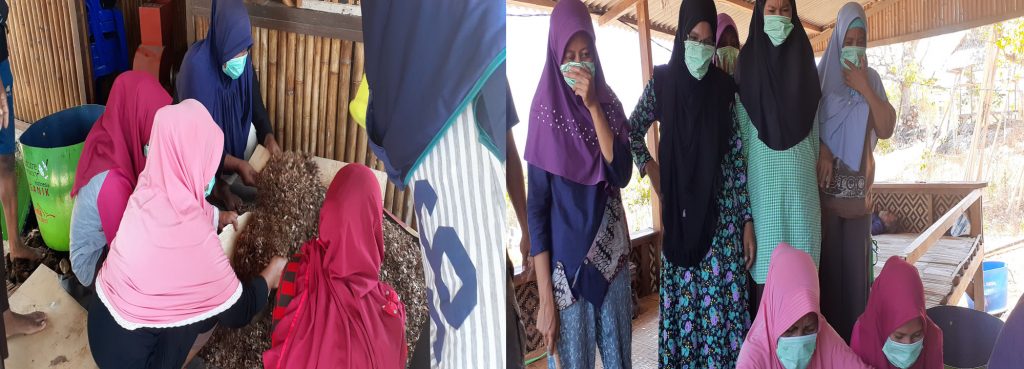
Photo 28: Training on making organic fertilizer with the Dasawisman group.
PROJECT OUTCOMES
- The forum agreed to make the function of the Fish Bank more effective as stated in the minutes of activities.
- Forum Wants Activities Next, a meeting must be held to discuss methods for utilizing and supervising the Fish Bank in Kulati Village.
- This activity involved 44 participants consisting of 26 men, 18 women.
- Community concern in monitoring fish banks is starting to grow, this can be seen from community reports to the village government regarding the use of compressors at night.
- Coordinates have been taken in the Fish Bank Area involving 6 people.
- There is a map of the fish bank area installed at the entrance to the beach in Kulati Village.
- Installation of 10 Murine Boy units in the Fish Bank area. This activity involved 12 people, including 8 men and 4 women. 8 of them are members of youth organizations, to introduce the fish bank to young people in the village
- The Poassa Nuhada group once a month carries out supervision in the fish bank area involving several people from youth groups, the community (fishermen), and the village government.
- Identified 15 Types of Local Land Food.
- Implementation of knowledge transfer on management of local food species and cultivation to youth organizations. followed by 26 participants who attended.
- Implementation of the dissemination of knowledge of the types and characteristics of tubers by Dasawisma mothers to the younger generation.
- The Pajuju Festival activities were carried out by making talang poromu (giant kandea) with various types of local food preparations in it.
- The activity was attended by the Regent of Wakatobi and elements of the SKPD district, Wakatobi and 20 members of the DPRD Wakatobi District.
- This activity was also attended by the people of Tomia Island. Training in Making Organic Fertilizer was carried out for the Dasawisma mothers of Kulati Village.
- There are demonstration plots planted with various types of local food and tubers.
- Implementation of outreach on the use of environmentally friendly fishing gear to fishing communities, the younger generation and school children.
- There are approximately 4,900 M2 of location around the spring that will be targeted for reforestation and the land owner of the spring location is known.
- Local plants identified in the spring area (Te'e Wamakuni) include 1 Coconut Tree, 11 Banana Trees and the rest are bushes that are not utilized by the land owner.
- Agree on spring protection activities, especially the protection of plants to be planted, as outlined in the minutes document.
- There is a 3 x 5 m nursery house.
- Availability of 1,100 local mango and jackfruit plant seeds.
- Involvement of 135 dasawisma women in procuring local seeds.
- Involving 3 people with disabilities in Kulati Village. The planting of 1000 local trees involved 121 people consisting of 102 men and 19 women.
- Implementation of local tree maintenance activities in the spring area involving 9 women.
- There are 9 firewood efficient stoves distributed in each dasawisma from the target of 4 in the proposal.
- Carrying out training activities with the mothers of Kulati village by presenting presenters from the sub-district PKK.
- There are products resulting from diversification of agricultural products and local fisheries through the Wakatobi Wave Festival activities.
- Identification of Village Institutions such as Fishermen's Group, Karang Taruna, Dasawisma, BPD, Village Government.
- Inclusion of community conservation and welfare programs into Village planning documents.
POSITIVE IMPACT
- Increase people's income. Fisheries sector through Bagang fishing gear.
- Create jobs.
- Reduce rubbish stranded on beaches around Kulati Village.
- BUMDes has requested capital participation in 2020 for the manufacture of bagang in 2021 as one of the BUMDes business units.
- How to catch fish in Bagang is included in the Kulati Village tour package
- Become a source of livelihood for fishermen in the future.
- Food availability, especially dried anchovies, can be met during the rainy season.
- Potential to create business opportunities for cultivating bobara fish (cake fish).
- The remaining anchovy waste can be used as compost material
- Clarity of fish bank area boundaries.
- Increase the income of fishermen (boat owners)
- Clarity of fish bank area boundaries.
- The availability of information that can be accessed by the people of Tomia Island regarding the Kulati Village Fish Bank.
- The public knows the boundaries of protected marine areas.
- Awareness of the fish bank area, especially among the younger generation of Kulati Village.
- Increase boat owner's income.
- Know clearly the area of the water catchment area and conditions before planting.
- Increasing the economic income of 135 Dasawisma women because manga and jackfruit tree seeds were purchased directly by program implementers involving 9 Dasawisma groups.
- Utilization of local seeds that have been wasted in vain.
- Guaranteed continued life of local plants because annoying weeds have been removed.
- It makes it easier for residents to hold celebration events because there are stoves available in every Wisma village.
- Increasing residents' income because the stoves made from iron are powered by welding machines in Kulati village.
- Reducing the amount of firewood used in household use, this can be seen from the demand for 15 household scale stoves produced by welders.
- Increasing the documentation team's knowledge about local food preparations such as JABBARI Local Food which is made from processed young jangun which is mashed using kagili then mixed with coconut milk and brown sugar after which it is cooked until the dough comes together like processed waji
- There is awareness among the younger generation about the management and cultivation of local food crops which has been carried out by our parents.
- There is awareness among the younger generation about the types and characteristics of tubers.
- Introducing Pajuju culture to the outside community and establishing Pajuju culture as Wakatobi maritime culture by the Regent of Wakatobi and will be included in the regional event calendar.
- Improving the economy of the people of Tomia Island through post-festival sales both from Kulati Village itself and from outside Kulati Village.
- Preserving Pajuju culture as well as other cultural activities such as dances and other attractions.
- Increasing village PAD through income from the Tourist Area Entrance Portal.
- There are collaborative activities between the GFE-SGP Program, POASSA NUHADA, Village Government and the District Education and Culture Service. Wakatobi.
- Implementing the use of organic fertilizer by several Dasawisma groups on shallot plants which was provided through village funds.
- There is multi-party collaboration regarding fertilizer production. Such as collaboration with YKAN to procure compost chopping machines and laboratory tests on the fertilizer produced.
- Collaborating the Kulati village tour package with the How to Make Deep Compost fertilizer package.
- Overall, the people of Kulati village have used environmentally friendly fishing gear. This can be seen from the tools they have used so far, namely fishing rods, nets, arrows, puria and basic fishing rods.
- Participants gain knowledge about how to make several local food preparations.
- Increase the income of Product owners.
- Enriching the variety of products at the East Tomia sub-district stand at the event.
- There is a village planning document which contains a community conservation and welfare program in the Kulai Village planning document, such as the procurement of fishermen's bags, the provision of local trees at springs and several other deforested places.
- Multi-party collaboration with YKAN to create a Village Regulation on Waste Management in Kulati Village so that household organic waste can be sorted again for compost fertilizer production.
NEGATIVE IMPACT
- The community has not been fully involved in the maintenance process of the installed murine buoy.
- There are several piles of rubbish as a result of the festival.
- Unhealthy issues have emerged in the community regarding funding from the Department which is part of the collaboration with GEF-SGP funders for the Pajuju Festival activities.
BEST EXPERIENCE
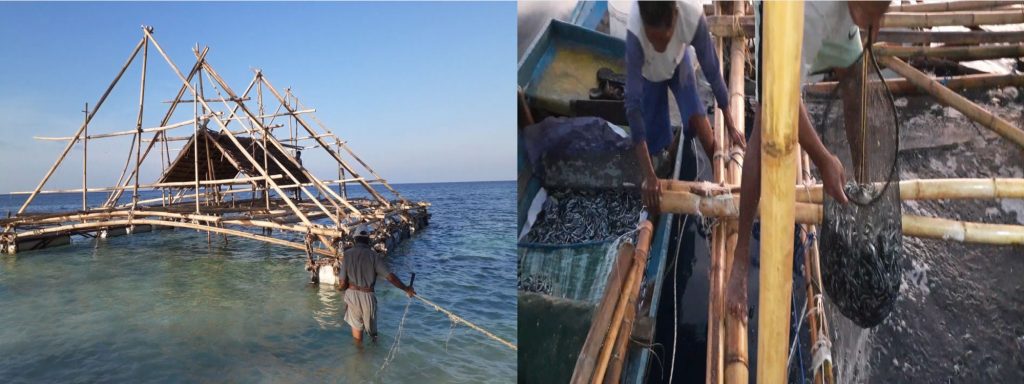
Making of Bagang, one type of fishing gear in the utilization and management of the Fish Bank managed by POASSA NUHADA.
Bagang catching results, part of the utilization of the Fish Bank.

Several residents of Kulati Village also experienced the sensation of fishing in bagang in the fish bank area.

Involving the younger generation in catching and managing fishing results in Bagang.
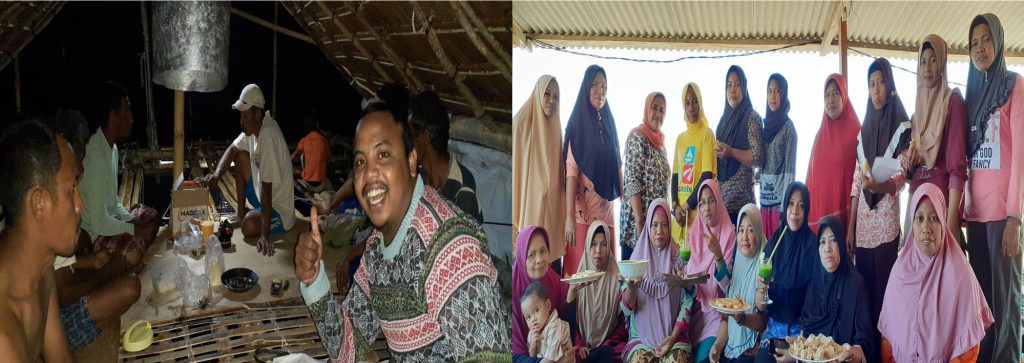
Situation at night in Bagang
Togetherness and experience gained in local food processing diversification training activities.
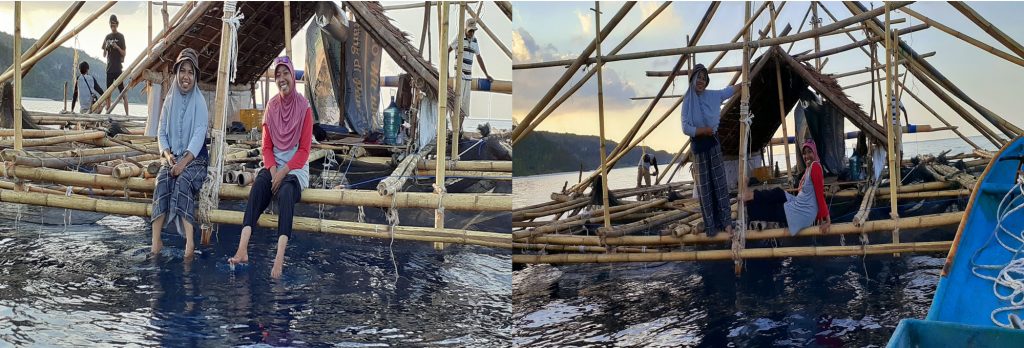
Together with the HOST TEAM when carrying out routine monitoring and evaluation of the Poassa Nuhada group.
PROJECT SUSTAINABILITY
- BUMDes has requested capital participation in 2020 for the manufacture of bagang in 2021 as one of the BUMDes business units.
- Agreeing on spring protection activities, especially plants that have been planted at the Te'e Wamakuni spring location, has been stated in the village planning document.
- The Pajuju Festival (Local Food Culinary) has been proposed by the Regent as an event calendar for the Wakatobi Regional Government.
MEDIA AND PUBLICATIONS
